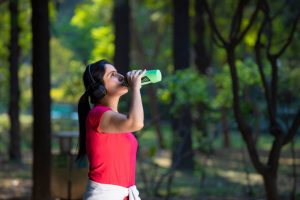Singapore’s tropical sunshine offers plenty of natural vitamin D, yet many locals might still benefit from D3 supplements.
Here’s why this paradox exists and what you need to know.
The Sunshine Vitamin in the Garden City
Singapore, known for its equatorial location, enjoys abundant sunlight year-round, which naturally facilitates the synthesis of vitamin D. However, despite the ample sunshine, the urban lifestyle and prevalent use of sunscreen among Singaporeans can significantly reduce their exposure to beneficial ultraviolet rays.
Understanding Vitamin D: Diet, Genetics, and Lifestyle
In Singapore, the levels of vitamin D—a crucial nutrient for bone health—vary widely among residents, influenced by factors such as diet, genetics, and lifestyle habits.
Research shows that a higher dietary intake of vitamin D can lead to better overall levels of this nutrient in the body. For example, studies among older Chinese Singaporeans found that those consuming more vitamin D in their diet had higher blood levels of the nutrient, with most maintaining sufficient levels for good bone health. Specifically, the average level found was 68.8 nmol/l, which is considered adequate by health standards, with many reaching even higher levels that could provide additional health benefits.
However, not everyone’s body handles vitamin D in the same way. Genetic differences can affect how vitamin D is processed in the body, making some people naturally have higher or lower levels regardless of their diet. This highlights the need for personalised dietary advice based on individual genetic profiles.
Moreover, the prevalence of vitamin D deficiency is particularly high among overweight and obese individuals in Singapore. This deficiency is concerning as it’s linked with higher body fat—a common health issue.
Athletes also show varying levels of vitamin D, depending largely on their exposure to sunlight. Those who train indoors generally have lower vitamin D levels compared to athletes who train outdoors. For instance, indoor athletes in Singapore have been found to have average levels around 28.6 ng/mL, while outdoor athletes average about 39.2 ng/mL. This significant difference highlights the importance of regular sunlight exposure for maintaining sufficient vitamin D levels.
These findings suggest that while Singapore’s sunny climate generally supports adequate vitamin D levels, additional factors like diet, body composition, and indoor versus outdoor lifestyle choices play critical roles in determining individual needs. For some, especially those with less sun exposure or higher body fat, vitamin D supplementation could be a helpful addition to maintain optimal health.
The Case for Vitamin D3 Supplementation in Singapore
Given the variety of factors influencing vitamin D levels, supplementation could be a valuable strategy for many in Singapore. It ensures consistent levels regardless of dietary intake, genetic factors, or lifestyle habits, particularly for those at higher risk of deficiency.
For the general population, especially those with limited sun exposure or high body fat percentages, vitamin D3 supplements can help bridge the gap between natural production and the body’s actual needs. Considering the importance of vitamin D in supporting bone health, immune function, and overall well-being, maintaining adequate levels is crucial.
Furthermore, as urban lifestyles continue to limit outdoor activities, and with dietary preferences not always aligning with nutritional needs, supplements offer a practical solution to prevent deficiency. This is particularly important in a multicultural city like Singapore, where dietary habits can vary significantly across different ethnic and age groups.
Ultimately, while the sunny environment provides a great baseline for natural vitamin D synthesis, the reality of modern living conditions and individual health profiles suggest that many could benefit from a supplemental boost. This approach ensures that all individuals, regardless of their daily routine or genetic background, have access to the vitamin D necessary for a healthy life.
Broad Spectrum Benefits of Adequate Vitamin D Intake
Vitamin D is essential not just for bone health but also impacts immune function, cardiovascular health, and mental well-being. In Singapore, where diverse factors affect vitamin D levels, understanding these benefits can guide better health practices.
Bone Health and Athletic Performance
Vitamin D significantly enhances calcium absorption and bone metabolism, key in preventing osteoporosis and fractures. Among Singaporean athletes, those with adequate levels of vitamin D—generally above 50 nmol/L—demonstrated significantly greater bone strength and peak force generation. This correlation highlights the crucial role of vitamin D in maintaining optimal physical health and performance.
Enhancing Immune Function
Vitamin D also modulates the immune system. A study found that a majority of overweight and obese individuals in Singapore, around 75.7%, were vitamin D deficient. This deficiency correlates with a higher susceptibility to immune-related health issues. Increasing vitamin D intake could bolster immune responses and potentially decrease the risk of certain infections and chronic diseases.
Cardiovascular Health Connections
Furthermore, vitamin D status inversely affects cardiovascular risk factors such as insulin resistance and lipid profiles. In a Singapore study, 42% of healthy participants were found to be vitamin D deficient. This deficiency was associated with unfavourable cardiovascular risk factors like higher total cholesterol to high-density lipoprotein ratios. Addressing this deficiency with vitamin D supplementation could contribute to better cardiovascular health.
Mental Health Considerations
Emerging research suggests vitamin D’s role in mental health, particularly in mood regulation and reducing the risk of depression. Although specific local studies are limited, the global research narrative supports the potential mental health benefits of maintaining adequate vitamin D levels.
Practical Steps for Boosting Vitamin D Levels
- Sunlight Exposure: Aim to spend at least 15–20 minutes in direct sunlight daily, preferably during midday, when the sun’s UVB rays are strongest. This natural method is one of the most effective ways to boost your vitamin D levels.
- Dietary Changes: Incorporate vitamin D-rich foods into your diet, such as fatty fish (like salmon and mackerel), egg yolks, and fortified foods such as milk, orange juice, and cereals. These dietary adjustments can help increase your vitamin D intake.
- Vitamin D Supplements: Consider taking a vitamin D supplement, especially during the winter months or if you have limited sun exposure. Supplements are an easy and effective way to ensure you are getting enough vitamin D, but consult with a healthcare provider for the appropriate dosage.
- Regular Testing: Get your vitamin D levels tested regularly, especially if you belong to a high-risk group. This will help you monitor your levels and make informed decisions about supplementation and lifestyle adjustments.
- Stay Active Outdoors: Engage in outdoor physical activities, such as walking, jogging, or cycling. Regular outdoor exercise not only helps with natural vitamin D synthesis but also promotes overall health and wellness.
The Need for Vitamin D3 Supplementation
The wide-ranging health benefits of maintaining sufficient vitamin D levels in Singapore highlight a critical area that demands attention. The data strongly supports the integration of vitamin D3 supplementation into daily routines. Especially for those at risk of deficiency due to lifestyle, dietary restrictions, or genetic factors.
Implementing a health strategy that encourages regular vitamin D screening, coupled with awareness campaigns on the benefits of supplementation and natural sources, could profoundly impact the general well-being of Singaporeans.
This proactive approach not only aligns with international health recommendations but also serves as a model for urban health management. This ensures that all residents, irrespective of their lifestyle or background, have the necessary resources to maintain optimal health.
References
- Robien, K., Butler, L. M., Wang, R., Beckman, K. B., Walek, D., Koh, W. P., & Yuan, J. M. (2012, May 15). Genetic and environmental predictors of serum 25-hydroxyvitamin D concentrations among middle-aged and elderly Chinese in Singapore. British Journal of Nutrition, 109(3), 493–502. https://doi.org/10.1017/s0007114512001675
- Ong, M. W., Tan, C. H., & Cheng, A. K. S. (2018, February 16). Prevalence and Determinants of Vitamin D Deficiency Among the Overweight and Obese Singaporeans Seeking Weight Management Including Bariatric Surgery: a Relationship with Bone Health. Obesity Surgery, 28(8), 2305–2312. https://doi.org/10.1007/s11695-018-3142-y
- Huang, L., Lum, D., Haiyum, M., & Fairbairn, K. A. (2021, February 4). Vitamin D Status of Elite Athletes in Singapore and Its Associations With Muscle Function and Bone Health. Journal of Science in Sport and Exercise, 3(4), 385–393. https://doi.org/10.1007/s42978-020-00093-y













